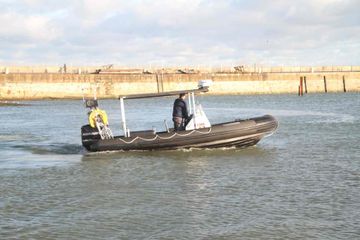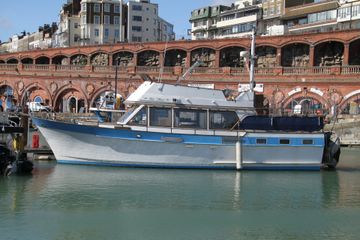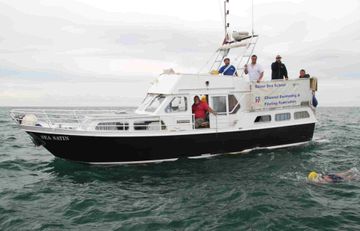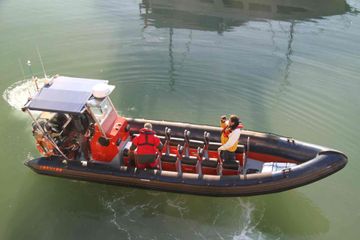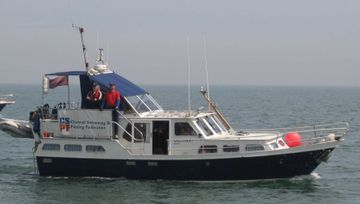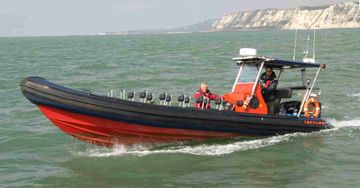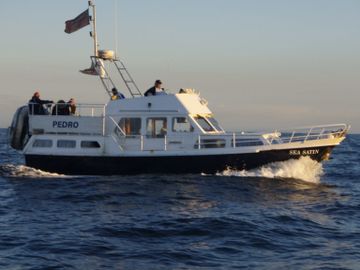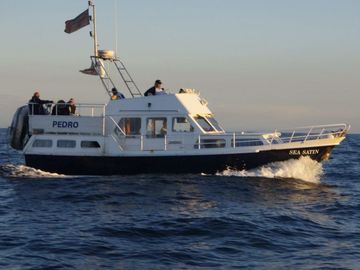Courses ~ Practical & Theory
Courses 1. -- Motor Cruising - ICC - CEVNI certificate
Courses - 2. -- Powerboating
Courses - 3. -- Theory classes - Dayskipper - Yachtmaster - First Aid -Radar - Navigation - Diesel - PPR and RYA interactive (online courses and exams)
COURSES 1. Motor Cruising and ICC / CEVNI certification
Introduction to Motor Cruising: 1 or 2 days:
The course consists of boating safety & basic seamanship No previous knowledge is required or assumed. The instruction is designed to enable you to be a useful crew member with knowledge of basic seamanship and safety. It is an informal course that covers both the practical and theory for newcomers to boating .
Helmsman's Course: 2 days:
This is a 2 day boat handling course The course consists of boating safety, boat handling and man overboard. It is particularly suitable for people new to motor cruising. Some practical experience is desirable but not essential. On successful completion of the course you should be competent to handle a motor cruiser in sheltered waters. The Helmsman course is the same for non-tidal and tidal waters.
Introduction to Motor Cruising, the Helmsman course and the Day Skipper course can be combined into a single 5 day course.
Day Skipper Practical:
This course is a minimum of :
4 days if you hold a helmsman's certificate - 5 days if combined with Helmsman -
6 days if completed over 3 x 2 day periods.
The course covers more thoroughly boat handling, safety, pilotage, meteorology and some coastal navigation. An RYA completion certificate is awarded on successful completion and you should be capable of skippering a motor cruiser in local and familiar waters by day.
Day Skipper Theory: 6 -7 days: 40 hours minimum plus exams
Intensive study at theory school, or it can be completed by a correspondence course or at local night school class.
An elementary course in seamanship, navigation and meteorology. It is the forerunner to the more advanced Coastal Skipper/Yachtmaster Offshore standard.
The course with us consists of classroom tuition, a set of course completion papers and written exam papers.
An RYA certificate is awarded on successfully completing the course work and passing the exams. The shorebased theory syllabus is the same for sailing and motorboating
RYA National Motor Cruiser Certificate:
When you have logged a minimum sea time of 10 days, 200 nautical miles and 6 night hours plus completed and been awarded your Day Skipper practical and your Day Skipper theory course completion certificates you can apply to the RYA office for this certificate which is awarded on request.
Yachtmaster Coastal /Yachtmaster Theory:
Usually 6 - 7 days, 40 hours minimum plus the exams. Intensive theory course, or a correspondence course, or at your local night school classes.
This is an advanced course in offshore & coastal navigation, pilotage and meteorology for candidates for the Yachtmaster Coastal and Yachtmaster Offshore Certificate of Competence. An elementary knowledge is presumed (to Day Skipper theory at least) although the syllabus allows for some revision, but this might mean a longer course time is required as there is a lot to cover in the time allocated. We can offer additional days if needed. There are course completion papers and a set of written exam papers to accompany the classroom tuition.
On successfully passing the exam papers the RYA theory certificate is awarded.
Students who sit the RYA assessment exams for full certification are assessed on their practical and theory ability to skipper a motor cruiser by an independant RYA examiner.
Yachtmaster Coastal Practical:
Minimum pre exam course experience suggested - 15 days (2 as skipper), 400 miles and 8 night hours. Coastal Skipper theory. This is an advanced course for potential skippers. It is assumed that those attending will be competent helmsmen with a good knowledge of the theory of navigation, meteorology and a command of the basic skills of seamanship. There is insufficient time during the course to teach the basic skills of seamanship and navigation as the course is designed to improve and advance the skills required to skipper a motor cruiser not to cover the theory background.
The RYA course completion certificate is awarded on successful completion.
Students who sit the RYA assessment exams for full certification are assessed on their practical and theory ability to skipper a motor cruiser by an independant RYA examiner.
--------------------------------------------------------------------
RYA/DoT Yachtmaster Coastal Certificate of Competence:
The Yachtmaster Coastal assessment candidates should have the knowledge to skipper a motor cruiser on coastal cruises but does not necessarily have the experience needed to undertake longer passages.
- Required minimum sea time 30 days,
- 2 days as skipper, 800 miles and 12 night hours.
For holders of practical and theory course completion certs.
- The sea time is reduced to 20 days,
- 2 days as skipper, 400 miles & 12 night hours.
You must hold a VHF licence.
The practical exam will take a minimum of 6-10hrs for one candidate, 8 - 14 for two.
It is with an independent RYA appointed examiner.
You will be expected to demonstrate your practical ability as a coastal skipper and should be able to answer questions on any part of the syllabus up to Coastal Skipper.
- The exam fee is paid directly to the examiner on the day
RYA/DoT Yachmaster Offshore Cert. of Competence:
The Yachtmaster Offshore is an experienced yachtsman competent to skipper a motor cruiser on any passage that can be completed without the use of astro-navigation.
- Required minimum sea time 50 days, 5 days as skipper, 2500 miles,
- 5 passages over 60 miles, 2 as skipper & 2 overnight.
- You must hold a VHF licence and a First Aid certificate.
The exam will take 8 - 12hours for one candidate, 10 - 18 for two.
You will be set tasks to demonstrate your ability as a skipper to offshore standard and can be asked questions on any part of the syllabus.
- The exam fee is paid directly to the examiner on the day
Yachtmaster Ocean Cert. of Competence
The Yachtmaster Ocean is an experienced yachtsman competent to skipper a yacht on passages of any length in all parts of the world.
- The candidate must hold a Yachtmaster Offshore Certificate of Competence and have completed a qualifying passage of a minimum of 600 miles having been at sea for a minimum of 96 hours with at least 200 miles more than 50 miles from land (see the RYA log book).
The exam consists of a written and oral test on all aspects of the Ocean course, the qualifying passage and astro navigation.
ICC - International Certificate of competence
ELIGIBILITY: This certificate is available only to BRITISH CITIZENS or bone fide BRITISH RESIDENTS (Evidence of British residency may be required).
All applicants applying for the European
inland waterways category must also have passed the
CEVNI (European Inland waterways regulations) exam on waterway rules at a recognised establishment or online at an RYA interactive school. The CEVNI test is made up of an oral/written set of questions.
For ICC certification EVIDENCE OF COMPETENCE may be provided in one of the following ways:
- By producing an RYA Certificate of Satisfactory completion of a relevant practical course
- An RYA/DoT certificate of competence or a statutory certificate of competence issued by the Department of Transport, or a bridge Watchkeeping Certificate.
- By passing a practical/ theory test of competence at a RYA Recognised Teaching Establishment or an RYA Affiliated Club authorised to carry out tests.
The ICC assessment is an; ORAL/WRITTEN TEST in three parts plus a practical test (for sail or power).
Part 1. for all candidates -- Regulations & Safety
REGULATIONS
- Know responsibility for keeping a proper lookout
- Can determine a "safe speed"
- Can recognise a potential collision situation.
- Can identify "give way" vessel in a collision situation.
- Knows what action to take as "give way" or "stand on" vessel.
- Knows the responsibilities of a small vessel in a narrow channel.
- Can recognise manoeuvring signals eg. - (1,2,3,4,5, short blasts)
- Can make and recognise visual distress signals.
SAFETY
Is able to use and instruct crew on the use of:
- Lifejackets -- Distress flares -- Fire extinguishers -- Engine "kill cord" (if fitted)
- Can prepare a boat for use and take sensible precautions before setting out, including:
- engine checks -- check fuel for range/duration of trip -- obtain weather forecasts -- avoid overloading boat
Part 2. European INLAND waterways ONLY
- Understands CEVNI (European inland waterways regulations) and passes the CEVNI test.
Part 3. FOR CANDIDATES FOR COASTAL WATERS
Regulations.
- Knows rules relating to Traffic Separation Schemes
- Knows requirements for navigation lights and shapes to be displayed by own vessel.
Can recognise the following from their lights:
- Power driven vessel -- sailing vessel -- vessel at anchor -- tug & tow -- fishing vessel -- dredger -- restricted in ability to manoeuvre -- not under command -- constrained by draft.
- Know the sound signals made by above.
PILOTAGE
- Can recognise by day & night and understand significance of buoys of the IALA system
- Knows sources of information on local regulations, port entry & departure signals. VTS & port radio operations.
- Can plan a harbour entry/departure taking into account of possible presence of large vessels and avoiding navigational hazards.
NAVIGATION
- Can interpret a navigational chart and understand significance of charted depths and drying heights and can identify charted hazards.
- Can plot position by gross bearings and by lat/long.
- Can determine magnetic course to steer making allowances for leeway and tidal stream
- Can use a tide table to find times and heights of high and low water at a standard port.
- Can determine direction and rate of tidal stream from a tidal diamond on a chart or a tidal stream atlas.
The PRACTICAL TEST - Consists of:
- START procedures.
- DEPART FROM PONTOON
- 360° TURN IN CONFINED SPACE
- SECURING TO BUOY
- MAN OVERBOARD
- HIGH SPEED MANOEUVRES (if appropriate on powerboat) & manoeuvres under power.
- OR - HANDLING UNDER SAIL (if appropriate)
- COMING ALONGSIDE WINDWARD PONTOON.
(See the application form for further breakdown of sections listed above)
Application forms can be obtained from the RYA or our sea school office.
This document maintained by mailto:michael.oram@btinternet.com
Material Copyright © 1988 Dover Sea School
